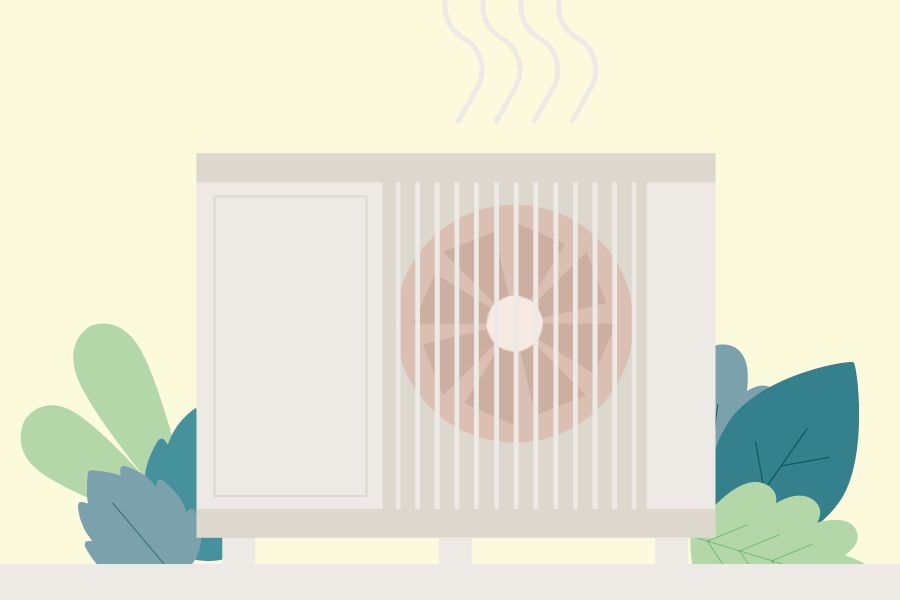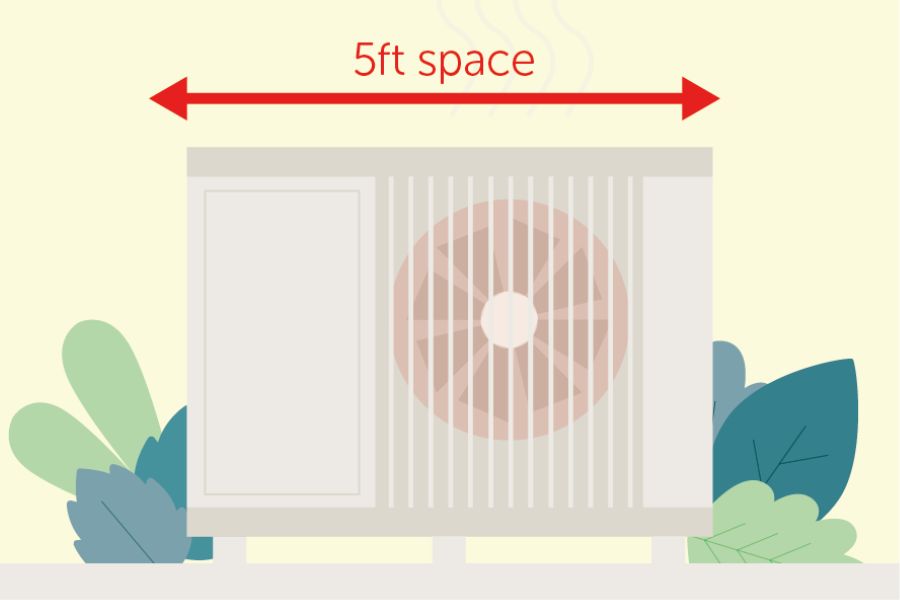Energy saving advice
Air source heat pump servicing: A complete guide
01 Aug 2024 • 4 minutes

Energy saving advice
01 Aug 2024 • 4 minutes
HomeServe Academy Tutor

To make sure that your heat pump continues to work to its full potential, you need to maintain it regularly with a heat pump service.
In this guide, we’ll talk you through how an air source heat pump service works and some simple tips to help you keep your heat pump running smoothly.
To make sure that you can get the most out of your air source heat pump, you should look to get it serviced each year.
This will not only mean that your heat pump is kept in good shape, but an up to date service history will keep your warranty valid. So, if something should go wrong, you may be able to get it repaired or replaced without extra cost.
A yearly service will also help you prolong the life of your heat pump. One of the biggest benefits of a heat pump is that it can last around 15 years or more if properly maintained.
In some cases, you may also need a regular service history to ensure you remain eligible for any Renewable Heat Incentive grant you may have received from the government.
Just like a regular boiler, you should try and follow the conditions of your heat pump warranty or guarantee. In most cases, this means that you’ll need to get your heat pump serviced once a year.
You should keep in mind that this service should only be carried out by a competent person who has received training in heat pump technology.
When you have an air source heat pump service, this will usually include:
Usually, a heat pump service can cost anything from £150 to £300, which can vary depending on the type of heat pump you have. The average cost is around £200 for a mid-range heat pump.
Aside from making sure that you keep on top of your yearly service, there are a few ways that you can help maintain your air source heat pump. Let's take a closer look...

Another great way of keeping everything working properly is to regularly clean your unit with a soft brush. This will help remove any dirt or debris that can build up and block any of the working parts.
If you’re unsure about how to clean your unit, ask your heating engineer or check your heat pump manual for advice. To keep things simple, just brush down the outside of the unit with a soft brush and make sure nothing is blocking the air flow.
While your system may not need significant repairs regularly, checking for general wear and tear and getting issues fixed as soon as you spot them will help you prolong the life of your heat pump.
If you’re not sure how you can check your systems manual or ask your service engineer when they next come to visit.
Just like with a boiler, it’s important to service your heat pump once a year to make sure it’s operating as efficiently as possible throughout the year. This will help stop any preventable breakdowns or problems that could crop up without regular servicing.
Don't wait until it's too late—schedule your air source heat pump service today and enjoy peace of mind knowing your system is ready to perform when you need it most.
Paul started his career with a 5 year Plumbing and Heating apprenticeship and became a fully qualified Plumbing and Heating Engineer. He has installed domestic central heating systems for local councils and also installed hot and cold water systems, heating systems and above ground drainage on new build properties.
Paul then moved into the service and repair of gas boilers and systems for larger companies such as npower and The AA before moving to HomeServe.
He continued to work in service and repair for HomeServe before pursuing an opportunity at the HomeServe Training Academy.
In the academy, he is part of the team that delivers training to HomeServe engineers and also to groups of internal and external gas apprentices, and soon to be training a group on Plumbing. The engineer training ranges from Gas ACS, unvented hot water, water regulations, heat pumps and safe electrical isolation.
HomeServe offers a fantastic work environment, and by incorporating air source heat pumps into our products and training, we demonstrate our responsiveness to evolving home heating needs and trends.
29 years in the plumbing and heating industry, 26 years fully qualified.
Paul started his career with a 5 year Plumbing and Heating apprenticeship and became a fully qualified Plumbing and Heating Engineer. He has installed domestic central heating systems for local councils and also installed hot and cold water systems, heating systems and above ground drainage on new build properties.
Paul then moved into the service and repair of gas boilers and systems for larger companies such as npower and The AA before moving to HomeServe.
He continued to work in service and repair for HomeServe before pursuing an opportunity at the HomeServe Training Academy.
In the academy, he is part of the team that delivers training to HomeServe engineers and also to groups of internal and external gas apprentices, and soon to be training a group on Plumbing. The engineer training ranges from Gas ACS, unvented hot water, water regulations, heat pumps and safe electrical isolation.
HomeServe offers a fantastic work environment, and by incorporating air source heat pumps into our products and training, we demonstrate our responsiveness to evolving home heating needs and trends.
29 years in the plumbing and heating industry, 26 years fully qualified.
Our help & advice articles cover Plumbing, Home heating, Electrical, Energy-saving and Home maintenance.